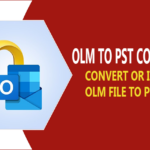Private equity (PE) companies cannot thrive unless they excel at practical fund administration. Therefore, strategizing capital commitment management considering compliance requirements and investor risk appetite is crucial. PE firms must also adopt alternative means of ensuring seamless operations that demand significant investment into tech upgrades. This post will discuss the top 3 best practices PE firms can embrace to demonstrate competency in optimizing fund administration.
A Brief About Fund Administration Activities in Private Equity
Private equity fund administration involves data-driven decisions concerning PE stakeholders’ ability to accomplish their financial and operational objectives to gain remarkable returns. This process necessitates accurate fund accounting and finance-related reporting skills. Many private equity support solutions also streamline capital call and distribution management. Additionally, they facilitate investor reporting, regulatory documentation aid, and taxation assessment assistance.
Fund administrators must determine the proper valuation of the assets. Otherwise, diversifying the portfolio will not be as effective as expected. The PE funds must also update investor records and periodically conduct comprehensive audits. Professional fund administrators become intermediaries, helping fund managers and investors cooperate more meaningfully.
Eliminating redundant back-office operations is also vital for fund administration because it will improve efficiency. Besides, straightforward workflows are integral to embracing transparency and reducing challenges in compliance assurance. Today, fund administrators’ skills have enabled private equity managers to prioritize deal-making and portfolio management without being burdened by operational or legal liabilities.
Optimizing Fund Administration – The Best Practices that PE Firms Require
- Excelling at Compliance via Consistent Inspections
Regulatory norms have become more restrictive. So, private equity funds must finalize strategies to make navigating stringent laws more manageable. Identical trends implying regulatory oversight have emerged worldwide. That is why private equity and hedge fund services that let financial professionals track and predict regulators’ ever-evolving mandates have become popular.
Adhering to local and global financial laws can be done with less confusion if a separate compliance department or associates’ team picks up this challenge. Furthermore, seasoned fund administrators know the ideal approaches to navigating the intricacies of governing bodies’ rules. Accordingly, they will employ internal audits and consistent compliance reviews. These practices successfully decrease the possibility of legal action and fines due to non-compliance.
- Implementing New Fintech Tools that Help Make Workflows More Efficient
The private equity sector must forego manual procedures that have dominated PE fund administration for decades. After all, novel technologies allow for extensive automation dedicated to streamlining activities and minimizing errors. Customized artificial intelligence (AI) tools can also enhance report creation.
Cloud-based financial technology applications might offer praiseworthy ideas regarding capital calls, distributions, and financial reporting. In other words, fewer human interventions will be necessary without hurting accuracy in decision-making. Likewise, financial analytics techniques aid investment strategy evaluation and risk mitigation efforts.
- Outsourcing Fund Administration to Tap into Others’ Expertise
Several PE firms gladly outsource fund administration to experienced professional third parties. This approach enables them to concentrate on core investment decision-making activities. At the same time, they benefit from independent administrators’ distinct expertise and infrastructure.
Third-party fund administrators might support PE teams in bookkeeping, compliance assurance, financial reporting, and investor communications workflows. They will also offer new, more scalable data processing guidance, making the client firms familiar with advanced computations. Private equity stakeholders can also lower the costs of some activities that would be resource-consumptive if conducted as in-house fund administration tasks.
Conclusion
PE firms must research and adopt the best practices vital to optimizing fund administration to excel at regulatory compliance. Moreover, improving efficiency across financial reporting and investor relations necessitates collaborating with others possessing relevant technologies. A properly optimized fund management strategy upholds transparency and scalability. Therefore, navigating the increased regulatory scrutiny and ensuring investor confidence is non-negotiable.




